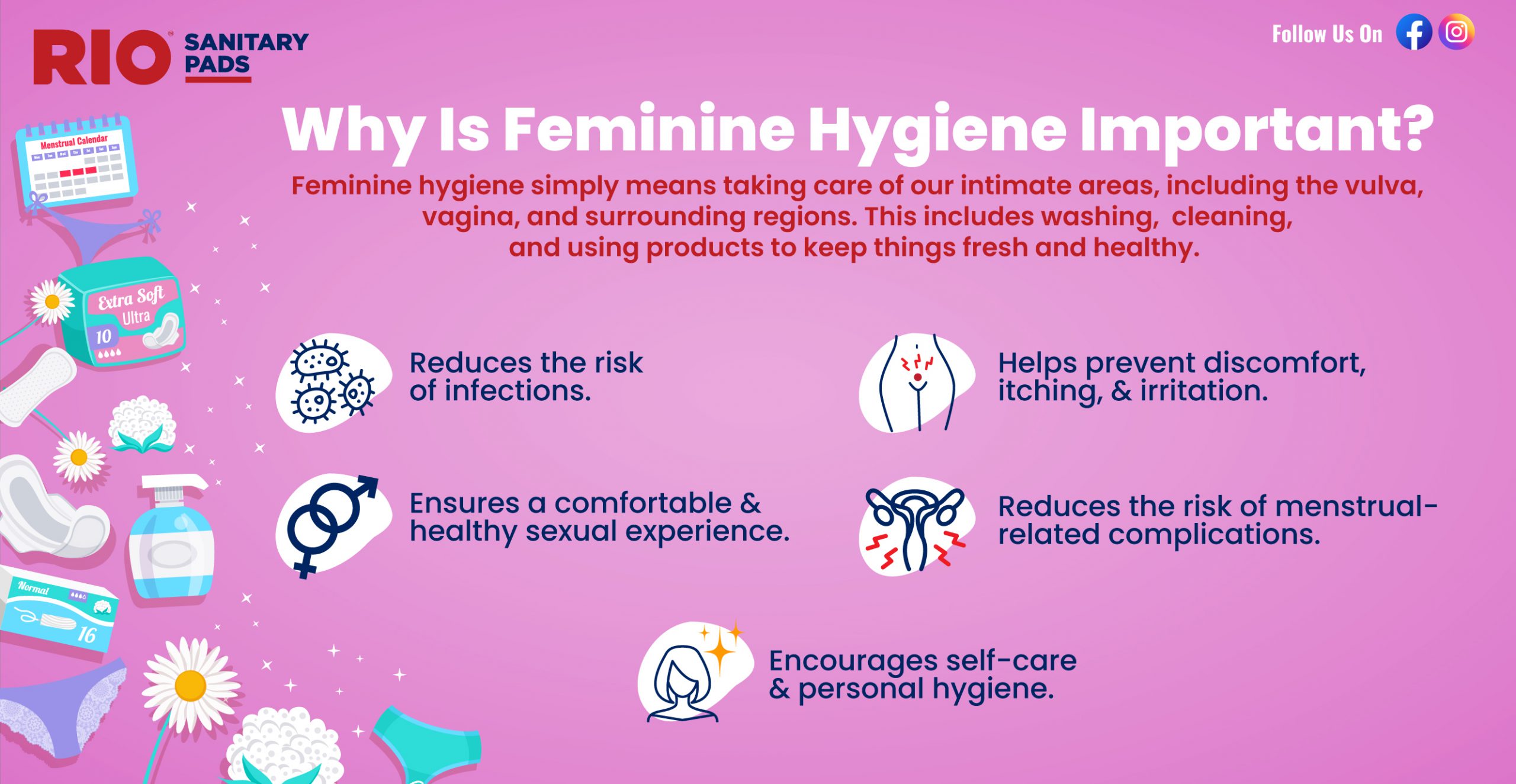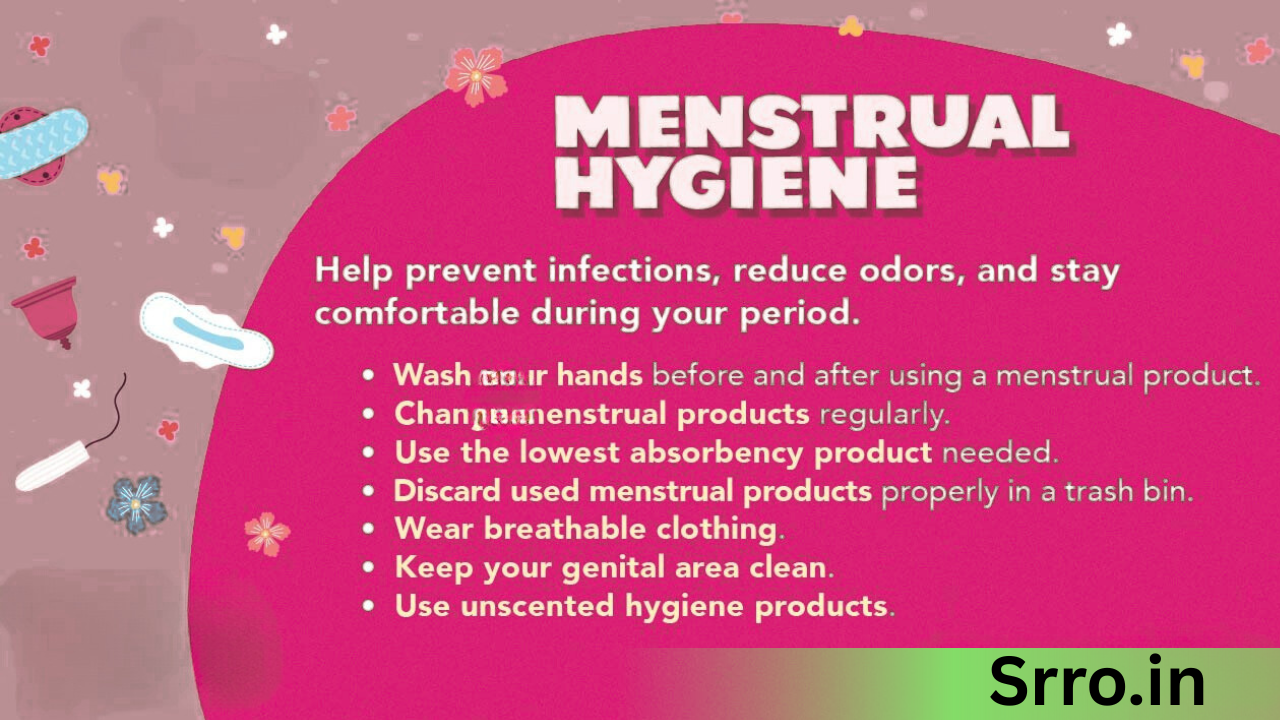
Introduction
Menstruation is a natural and essential part of a woman’s reproductive cycle. Yet, in many parts of the world, it remains a subject clouded in taboo, stigma, and misinformation. Millions of girls and women face challenges in managing their periods with dignity, safety, and comfort.
This is not just a health issue — it’s a matter of gender equality, human rights, and overall well-being. Menstrual hygiene is a critical aspect of health and sanitation that directly affects a girl’s education, confidence, social participation, and future opportunities.
This blog explores the importance of menstrual hygiene, the challenges girls face, and why every society must address this issue seriously.
Understanding Menstrual Hygiene

Menstrual hygiene refers to the practice of using clean menstrual products (such as pads, tampons, menstrual cups, or cloth), maintaining bodily cleanliness, and managing menstruation in a safe, dignified, and healthy way.
Proper menstrual hygiene includes:
- Access to clean and safe menstrual products.
- Adequate water, sanitation, and hygiene (WASH) facilities.
- Proper education about menstruation and reproductive health.
- Supportive environments that are free of stigma and shame.
Without these basics, girls may suffer from infections, drop out of school, or experience shame and mental stress.
Why Menstrual Hygiene Matters
Health and Well-being
Poor menstrual hygiene can lead to various health issues, including:
- Urinary tract infections (UTIs)
- Reproductive tract infections (RTIs)
- Fungal infections
- Infertility in severe untreated cases
Using unclean cloths or not changing pads frequently can lead to bacteria growth, which causes infections that may become serious if left untreated.
Education and School Attendance
One of the biggest impacts of poor menstrual hygiene is on girls’ education. According to UNICEF and other global studies:
- Millions of girls miss school during their periods due to lack of sanitary products or proper toilets.
- Some girls drop out entirely once they reach puberty because of the embarrassment and lack of support.
When schools lack proper toilets, water, and disposal systems, girls feel unsafe or ashamed to attend. Providing menstrual products and education can drastically increase attendance and academic performance.
Mental and Emotional Impact
Stigma and shame around menstruation often lead to:
- Low self-esteem
- Anxiety or depression
- Social exclusion
- Fear of teasing or bullying
When menstruation is seen as “dirty” or “impure,” girls may internalize these beliefs, harming their confidence and mental health. Open conversations and supportive environments help normalize periods and promote self-worth.
Gender Equality
Menstrual hygiene is directly linked to gender equality. When girls are denied access to menstrual care, they are essentially denied the right to education, health, and dignity. Empowering girls with knowledge, resources, and support ensures they can participate fully in society and live without discrimination.
Challenges in Menstrual Hygiene Management
Despite its importance, several challenges still exist:
Lack of Awareness and Education
In many households, especially in rural areas, girls are not taught about menstruation before their first period. This results in fear, confusion, and poor practices. Boys are often excluded from this conversation, which perpetuates teasing and taboos.
Cultural Taboos and Myths
In various cultures, menstruating women are considered “impure” or “unclean.” Girls are restricted from:
- Entering temples or kitchens
- Attending school
- Touching food or water
These beliefs reinforce the idea that menstruation is something to hide, not manage proudly.
Poverty and Lack of Access to Products
Millions of girls cannot afford sanitary pads or tampons and are forced to use:
- Old rags
- Newspapers
- Ash or sand
These alternatives are unsafe and unhygienic. Many communities also lack access to clean water, private toilets, or disposal options for sanitary waste.
Lack of Facilities in Schools and Workplaces
Many schools do not have:
- Clean, private toilets for girls
- Running water and soap
- Disposal systems for used products
This leads to absenteeism and long-term consequences in education and employment.
The Role of Education and Awareness
Menstrual Education in Schools
Incorporating menstrual health education in school curriculums can:
- Prepare girls before their first period.
- Break myths and misinformation.
- Encourage empathy and understanding among boys.
- Promote hygienic practices and confidence.
Teachers should be trained to speak openly and sensitively about the topic. NGOs and health workers can also support awareness drives in communities.
Involving Boys and Men
Menstrual hygiene is not just a “women’s issue.” Boys and men — fathers, brothers, teachers — play a key role in creating a supportive environment. Educating them reduces stigma and promotes equality.
When men understand menstruation and treat it as a normal part of life, girls feel safe and respected.
Role of Government and NGOs
Many governments and non-profit organizations are working to improve menstrual hygiene through:
Free or Subsidized Sanitary Products
- Distribution of free pads in schools
- Affordable or reusable options for low-income families
- Promotion of eco-friendly menstrual products (menstrual cups, biodegradable pads)
Building WASH Infrastructure
- Toilets in every school and public space
- Clean water and soap availability
- Waste disposal systems like incinerators or bins
Public Awareness Campaigns
Campaigns like #PeriodPositive, #MenstrualHygieneDay, and grassroots initiatives challenge harmful taboos and raise awareness on a large scale.
Innovations in Menstrual Products
Technology and innovation are improving access to safe and sustainable menstrual hygiene:
- Menstrual cups – long-lasting and eco-friendly
- Biodegradable pads – safer for the environment
- Reusable cloth pads – affordable and washable
- Smart dispensers – for pads in schools and public areas
Innovation is especially important for rural areas where access and affordability are major concerns.
Creating a Period-Positive World
Breaking the Silence
Conversations about periods should be normal — at home, in schools, on media, and in public health forums. Silence only deepens the shame. Open dialogue empowers girls to ask questions, seek help, and feel proud of their womanhood.
Supporting Each Other
Girls and women should support each other by:
- Sharing knowledge and experiences
- Offering pads when needed
- Creating safe spaces to talk about menstruation
Community support helps reduce fear and builds resilience.
Celebrating Womanhood
Periods are not a curse — they are a sign of strength and fertility. Changing the narrative from shame to celebration helps girls embrace their identity and body with pride.
Conclusion
Menstrual hygiene matters — not just for health, but for dignity, education, and equality. Every girl has the right to manage her period safely and comfortably, without fear or shame. It is the collective responsibility of families, schools, communities, and governments to ensure that no girl is held back because of a natural biological process.
By prioritizing menstrual hygiene, we are investing in healthier, stronger, and more confident generations of women. Let’s break the taboos, spread awareness, and build a world where menstruation is not a barrier — but a bridge to empowerment.
📧 info.srro@gmail.com
🌐 www.srro.in
Follow on Social Media:
👉(Facebook | Instagram | YouTube | X (Twitter)
